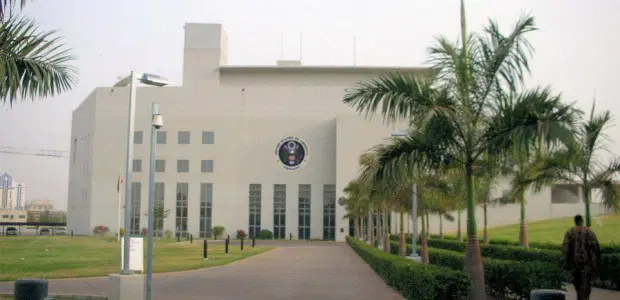Ahead of the 2024 Oil Licensing Round, President Bola Tinubu has decreased the signature bonus payable by successful bidders from around $200m to $10m.
This was disclosed by the Chief Executive of the Nigerian Upstream Regulatory Commission, Gbenga Komolafe, on Tuesday during the pre-bid conference held in Victoria Island, Lagos, according to The Punch.
According to Komolafe, the NUPRC conducted a survey of what other countries, such as Brazil, want as signature incentives from prospective investors and discovered that Nigeria’s should be reduced.
A signature bonus is a non-refundable payment provided by a contractor to the government upon signing a contract. Individuals who get oil assets are expected to pay the government a signing bonus.
Komolafe argued that a large signing bonus is a major barrier to entering into the Nigerian oil sector and that many firms have been unable to develop assets assigned to them.
Thus, the NUPRC has revealed that investments in deepwater will now be eligible for a $10 million signature bonus, while shallow water and onshore investments will receive $7 million.
He stressed that the commission made a plea to President Tinubu over the need to reduce the signature incentive, and the request was approved.
“A review of well intelligence energy analytic report on licensing round across the globe including Brazil, Guyana, Angola, Middle East, North Africa, Southeast Asia and so on reveal that the era of a huge front-loaded signature bonus is over. Again, I need to share this with us that the commission in its proactive nature, we’ve taken a survey and a look at what others are doing in terms of vacating front entry barriers.
“And for that reason, we recognise that it is very important for the nation to vacate the entry barriers. We made a case to the government and our dear president, being a business enabler, graciously granted the approval that the front entry barrier be vacated, and this is done in line with international best practices,” he expounded.
Komolafe stated that certain people who did not grasp the cause for the reduction had already started petitions against him.
“I need to make this public because as I speak, some quarters are already saying, ‘Probe the NUPRC, probe the CCE; they are trying to give out our oil blocks free of charge’. This is because they do not understand what we are doing. People are already writing petitions against the CCE, how will the commission be reducing the signature bonus? They did not know that signature bonuses can only be earned out of a successful bid exercise.
“So, while we are marketing this opportunity to attract investors, we are lucky we have a president who said Nigeria is ready for business. The commission enjoys the support of Mr President to introduce reforms that would help attract investments into the industry. Nigerians should understand that what we are doing is in the best national interest.
“Brazil and other countries are reducing the signature bonus, if for us as Nigeria we still hold signature bonus at about $100m and other, particularly, that is what is responsible for the fact that people use their political and financial muscles to get licences and they don’t do anything with it, they keep hawking it. We have moved courageously from that era and now we want to do business as it is supposed to be done. We want to move with the global best practices, so that we can get results,” Komolafe submitted.
Recalls that during a recent forum in Lagos, the Minister of State for Petroleum Resources (Oil), Heineken Lokpobiri, also emphasized the need to lower the signing bonus.
He said “About signature bonus, as a policy from the Ministry of Petroleum working together with the NUPRC, we have the buy-in of Mr President that, we should remove all entry barriers in the oil industry, one of which is the high cost of signature bonuses.
“As I came into office, I have had over 200 cases of people taking me to court for things I don’t know anything about. Some of them have to do with people who were beneficiaries of some of these oil blocks. They were given either $200m to pay as signature bonuses; $150m, or $100m, and they haven’t been able to pay. And the licence itself is very clear; the licence becomes yours only when you can make full payments; and because they have not been able to pay anything, those licences have lapsed automatically.
“But by the time we try to bring them back to the basket, they take us to court, bribe one judge who will give an injunction. So, what we’ve decided to do is, let’s reduce the signature bonus to the barest minimum,” he explained.











